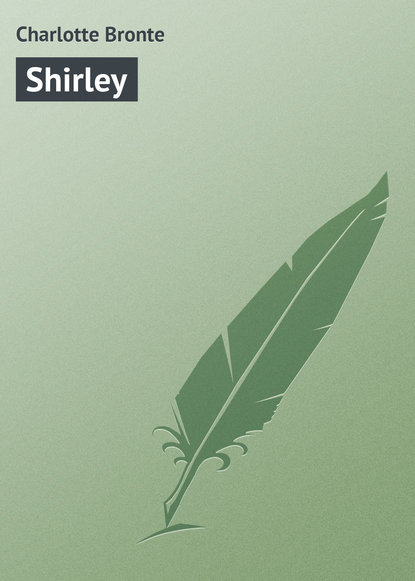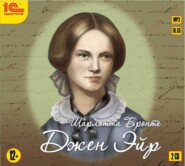По всем вопросам обращайтесь на: info@litportal.ru
(©) 2003-2024.
✖
Shirley
Настройки чтения
Размер шрифта
Высота строк
Поля
“To return to Shirley,” pursued Moore: “is it your opinion that she is ever likely to marry?”
“She loves.”
“Platonically – theoretically – all humbug!”
“She loves what I call sincerely.”
“Did she say so?”
“I cannot affirm that she said so. No such confession as ‘I love this man or that’ passed her lips.”
“I thought not.”
“But the feeling made its way in spite of her, and I saw it. She spoke of one man in a strain not to be misunderstood. Her voice alone was sufficient testimony. Having wrung from her an opinion on your character, I demanded a second opinion of another person about whom I had my conjectures, though they were the most tangled and puzzled conjectures in the world. I would make her speak. I shook her, I chid her, I pinched her fingers when she tried to put me off with gibes and jests in her queer provoking way, and at last out it came. The voice, I say, was enough; hardly raised above a whisper, and yet such a soft vehemence in its tones. There was no confession, no confidence, in the matter. To these things she cannot condescend; but I am sure that man’s happiness is dear to her as her own life.”
“Who is it?”
“I charged her with the fact. She did not deny, she did not avow, but looked at me. I saw her eyes by the snow-gleam. It was quite enough. I triumphed over her mercilessly.”
“What right had you to triumph? Do you mean to say you are fancy free?”
“Whatever I am, Shirley is a bondswoman. Lioness, she has found her captor. Mistress she may be of all round her, but her own mistress she is not.”
“So you exulted at recognizing a fellow-slave in one so fair and imperial?”
“I did; Robert, you say right, in one so fair and imperial.”
“You confess it – a fellow-slave?”
“I confess nothing; but I say that haughty Shirley is no more free than was Hagar.”
“And who, pray, is the Abraham, the hero of a patriarch who has achieved such a conquest?”
“You still speak scornfully, and cynically, and sorely; but I will make you change your note before I have done with you.”
“We will see that. Can she marry this Cupidon?”
“Cupidon! he is just about as much a Cupidon as you are a Cyclops.”
“Can she marry him?”
“You will see.”
“I want to know his name, Cary.”
“Guess it.”
“Is it anyone in this neighbourhood?”
“Yes, in Briarfield parish.”
“Then it is some person unworthy of her. I don’t know a soul in Briarfield parish her equal.”
“Guess.”
“Impossible. I suppose she is under a delusion, and will plunge into some absurdity, after all.”
Caroline smiled.
“Do you approve the choice?” asked Moore.
“Quite, quite.”
“Then I am puzzled; for the head which owns this bounteous fall of hazel curls is an excellent little thinking machine, most accurate in its working. It boasts a correct, steady judgment, inherited from ‘mamma,’ I suppose.”
“And I quite approve, and mamma was charmed.”
“‘Mamma’ charmed – Mrs. Pryor! It can’t be romantic, then?”
“It is romantic, but it is also right.”
“Tell me, Cary – tell me out of pity; I am too weak to be tantalized.”
“You shall be tantalized – it will do you no harm; you are not so weak as you pretend.”
“I have twice this evening had some thoughts of falling on the floor at your feet.”
“You had better not. I shall decline to help you up.”
“And worshipping you downright. My mother was a Roman Catholic. You look like the loveliest of her pictures of the Virgin. I think I will embrace her faith and kneel and adore.”
“Robert, Robert, sit still; don’t be absurd. I will go to Hortense if you commit extravagances.”
“You have stolen my senses. Just now nothing will come into my mind but les litanies de la sainte Vièrge. Rose céleste, reine des anges!”
“Tour d’ivoire, maison d’or – is not that the jargon? Well, sit down quietly, and guess your riddle.”
“But ‘mamma’ charmed – there’s the puzzle.”
“I’ll tell you what mamma said when I told her. ‘Depend upon it, my dear, such a choice will make the happiness of Miss Keeldar’s life.’”
“I’ll guess once, and no more. It is old Helstone. She is going to be your aunt.”
“I’ll tell my uncle; I’ll tell Shirley!” cried Caroline, laughing gleefully. “Guess again, Robert; your blunders are charming.”
“It is the parson – Hall.”
“Indeed, no; he is mine, if you please.”
“She loves.”
“Platonically – theoretically – all humbug!”
“She loves what I call sincerely.”
“Did she say so?”
“I cannot affirm that she said so. No such confession as ‘I love this man or that’ passed her lips.”
“I thought not.”
“But the feeling made its way in spite of her, and I saw it. She spoke of one man in a strain not to be misunderstood. Her voice alone was sufficient testimony. Having wrung from her an opinion on your character, I demanded a second opinion of another person about whom I had my conjectures, though they were the most tangled and puzzled conjectures in the world. I would make her speak. I shook her, I chid her, I pinched her fingers when she tried to put me off with gibes and jests in her queer provoking way, and at last out it came. The voice, I say, was enough; hardly raised above a whisper, and yet such a soft vehemence in its tones. There was no confession, no confidence, in the matter. To these things she cannot condescend; but I am sure that man’s happiness is dear to her as her own life.”
“Who is it?”
“I charged her with the fact. She did not deny, she did not avow, but looked at me. I saw her eyes by the snow-gleam. It was quite enough. I triumphed over her mercilessly.”
“What right had you to triumph? Do you mean to say you are fancy free?”
“Whatever I am, Shirley is a bondswoman. Lioness, she has found her captor. Mistress she may be of all round her, but her own mistress she is not.”
“So you exulted at recognizing a fellow-slave in one so fair and imperial?”
“I did; Robert, you say right, in one so fair and imperial.”
“You confess it – a fellow-slave?”
“I confess nothing; but I say that haughty Shirley is no more free than was Hagar.”
“And who, pray, is the Abraham, the hero of a patriarch who has achieved such a conquest?”
“You still speak scornfully, and cynically, and sorely; but I will make you change your note before I have done with you.”
“We will see that. Can she marry this Cupidon?”
“Cupidon! he is just about as much a Cupidon as you are a Cyclops.”
“Can she marry him?”
“You will see.”
“I want to know his name, Cary.”
“Guess it.”
“Is it anyone in this neighbourhood?”
“Yes, in Briarfield parish.”
“Then it is some person unworthy of her. I don’t know a soul in Briarfield parish her equal.”
“Guess.”
“Impossible. I suppose she is under a delusion, and will plunge into some absurdity, after all.”
Caroline smiled.
“Do you approve the choice?” asked Moore.
“Quite, quite.”
“Then I am puzzled; for the head which owns this bounteous fall of hazel curls is an excellent little thinking machine, most accurate in its working. It boasts a correct, steady judgment, inherited from ‘mamma,’ I suppose.”
“And I quite approve, and mamma was charmed.”
“‘Mamma’ charmed – Mrs. Pryor! It can’t be romantic, then?”
“It is romantic, but it is also right.”
“Tell me, Cary – tell me out of pity; I am too weak to be tantalized.”
“You shall be tantalized – it will do you no harm; you are not so weak as you pretend.”
“I have twice this evening had some thoughts of falling on the floor at your feet.”
“You had better not. I shall decline to help you up.”
“And worshipping you downright. My mother was a Roman Catholic. You look like the loveliest of her pictures of the Virgin. I think I will embrace her faith and kneel and adore.”
“Robert, Robert, sit still; don’t be absurd. I will go to Hortense if you commit extravagances.”
“You have stolen my senses. Just now nothing will come into my mind but les litanies de la sainte Vièrge. Rose céleste, reine des anges!”
“Tour d’ivoire, maison d’or – is not that the jargon? Well, sit down quietly, and guess your riddle.”
“But ‘mamma’ charmed – there’s the puzzle.”
“I’ll tell you what mamma said when I told her. ‘Depend upon it, my dear, such a choice will make the happiness of Miss Keeldar’s life.’”
“I’ll guess once, and no more. It is old Helstone. She is going to be your aunt.”
“I’ll tell my uncle; I’ll tell Shirley!” cried Caroline, laughing gleefully. “Guess again, Robert; your blunders are charming.”
“It is the parson – Hall.”
“Indeed, no; he is mine, if you please.”

















